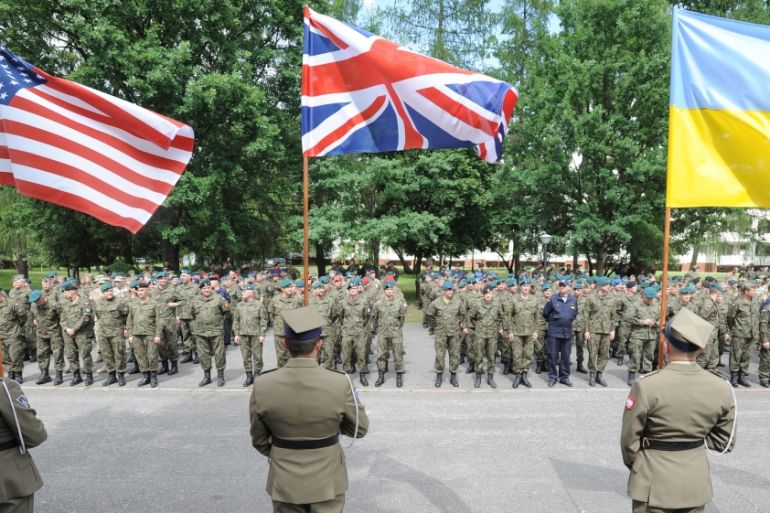NATO launches first military drills in Poland
Some 31,000 troops from 24 nations are participating in land, sea and air exercises amid growing concerns about Russia.

NATO countries have launched the first drills of a huge military exercise in Poland at a time when European nations are seeking strong security guarantees amid growing concerns about Russia.
The drills, part of an exercise codenamed Anakonda-16, began on Tuesday and will involve some 31,000 troops from Poland, the US and 17 other NATO member nations and from five partner nations.
Keep reading
list of 4 itemsNATO allies must do more as Ukraine runs out of ammunition: Stoltenberg
Nordic tensions on the rise amid Russian anger over NATO accessions
Flag of NATO’s 32nd member, Sweden, raised at alliance’s headquarters
Dozens of fighter jets and ships are due to take part in the 10-day event, along with 3,000 vehicles. The US is expected to provide the biggest contingent of foreign troops.
|
|
Russia has condemned the exercise, saying the presence of NATO troops close to its borders was a threat to its security.
This exercise “clearly does not contribute to an atmosphere of trust and security in the continent,” Russian President Vladimir Putin’s spokesman Dmitry Peskov said in comments carried by the state news agency TASS.
The show of force comes at a time when relations between Moscow and the West have hit a post-Cold War low because of Russia’s annexation of the Ukrainian peninsula of Crimea and its support for separatists in eastern Ukraine.
However NATO Secretary General Jens Stoltenberg has tried to play down Russia’s fears calling referring to it as “our biggest neighbour”.
“We have to relate to Russia and we have to work with Russia.”
Moscow’s annexation of Crimea in 2014 sparked anxiety in the region, and Estonia, Latvia and Lithuania have asked the alliance to expand its presence on their soil as a deterrent.
In July, NATO leaders will consider during a summit in Warsaw whether to deploy battalions to Poland and the Baltic countries – countries that were once part of the Soviet union – as part of their response to Russia’s actions.
The Kremlin strongly denies having any intention to attack the Baltic countries, but has often said that it feels they have become an aggressive “russophobic kernel” pushing NATO towards a consistently anti-Russian course.